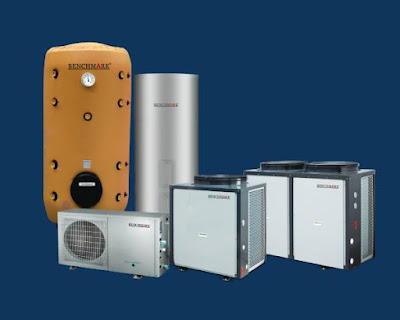Efficient Heat Pump Water Heater: Revolutionizing India's Hot Water Systems
India, a country renowned for its rich cultural heritage and diverse landscapes, is also a land of extreme temperatures. From scorching summers to chilly winters, Indians often face the challenge of managing their household energy consumption efficiently, especially when it comes to heating water. Traditionally, water heating in India has relied heavily on electric geysers, which consume Heat Pump Water Heater in India significant amounts of electricity and contribute to high energy bills and carbon emissions. However, a revolutionary technology is poised to transform this scenario – the efficient heat pump water heater.
Heat pump water heaters offer a highly efficient and sustainable alternative to traditional water heating methods. By harnessing ambient heat from the surrounding air, these systems can produce hot water with remarkable energy efficiency, significantly reducing both energy consumption and environmental impact. In the context of India, where energy conservation and sustainability are becoming increasingly important, the adoption of efficient heat pump water heaters has the potential to revolutionize the country's hot water systems and pave the way for a greener, more sustainable future.
The Need for Efficiency in Water Heating
Water heating accounts for a substantial portion of residential energy consumption in India, particularly during the colder months. Traditional electric geysers, which rely on electrical resistance heating, are notorious for their high energy consumption and inefficiency. Not only do they contribute to rising electricity bills for households, but they also place strain on the country's already overburdened power grid. Additionally, the reliance on fossil fuels for electricity generation means that conventional water heaters have a significant carbon footprint, exacerbating India's environmental challenges.
In this context, the need for more efficient and sustainable water heating solutions cannot be overstated. Efficient heat pump water heaters present a compelling alternative by utilizing renewable ambient heat sources, such as the air, to heat water. By leveraging the principles of thermodynamics, these systems can achieve high levels of energy efficiency, typically producing three to four units of heat for every unit of electricity consumed. This represents a dramatic improvement over conventional electric geysers, which Heat Pump Geyser often have a much lower efficiency rating.
Advantages of Heat Pump Water Heaters
The advantages of efficient heat pump water heaters extend beyond energy efficiency alone. These systems offer several additional benefits that make them an attractive option for Indian households:
-
Cost Savings: While the initial purchase cost of a heat pump water heater may be higher than that of a conventional geyser, the long-term savings in energy bills can more than offset this initial investment. With lower energy consumption and reduced reliance on grid electricity, households can enjoy significant cost savings over the lifespan of the system.
-
Environmental Sustainability: By reducing electricity consumption and carbon emissions, heat pump water heaters contribute to environmental sustainability. In a country like India, where environmental concerns such as air pollution and climate change are increasingly pressing, the adoption of sustainable technologies like heat pumps can play a crucial role in mitigating these challenges.
-
Versatility: Heat pump water heaters are versatile in their application and can be installed in a variety of settings, including homes, hotels, hospitals, and commercial buildings. Their modular design and compatibility with existing plumbing infrastructure make them a flexible solution for a wide range of hot water needs.
-
Reliability: Unlike solar water heaters, which depend on sunlight availability, heat pump water heaters can operate consistently day and night, regardless of weather conditions. This reliability ensures uninterrupted hot water supply, providing greater convenience and comfort to users.
Challenges and Considerations
While heat pump water heaters offer numerous benefits, their widespread adoption in India may face certain challenges:
-
Initial Cost: The upfront cost of purchasing and installing a heat pump water heater can be a barrier for some households, particularly those with limited financial resources. However, government incentives and subsidies can help offset this cost and make the technology more accessible to a broader segment of the population.
-
Awareness and Education: Many consumers may be unfamiliar Hot Pump Water Heater with heat pump water heaters and their benefits. Therefore, raising awareness and providing education about the technology, its advantages, and its operation are crucial for driving adoption.
-
Infrastructure Compatibility: Ensuring that existing plumbing and electrical infrastructure are compatible with heat pump water heaters may require additional investment or modifications. Proper installation by trained professionals is essential to optimize performance and longevity.
Conclusion
Efficient heat pump water heaters have the potential to revolutionize India's hot water systems by offering a sustainable, cost-effective, and environmentally friendly alternative to traditional electric geysers. With their high energy efficiency, versatility, and reliability, these systems address the pressing need for more efficient water heating solutions in the country. However, overcoming challenges such as initial costs, awareness, and infrastructure compatibility will be key to unlocking the full potential of this technology and realizing its benefits for Indian households and the environment alike. By embracing heat pump water heaters, India can take significant strides towards a greener, more sustainable future in its quest for energy efficiency and environmental stewardship.



Comments
Post a Comment